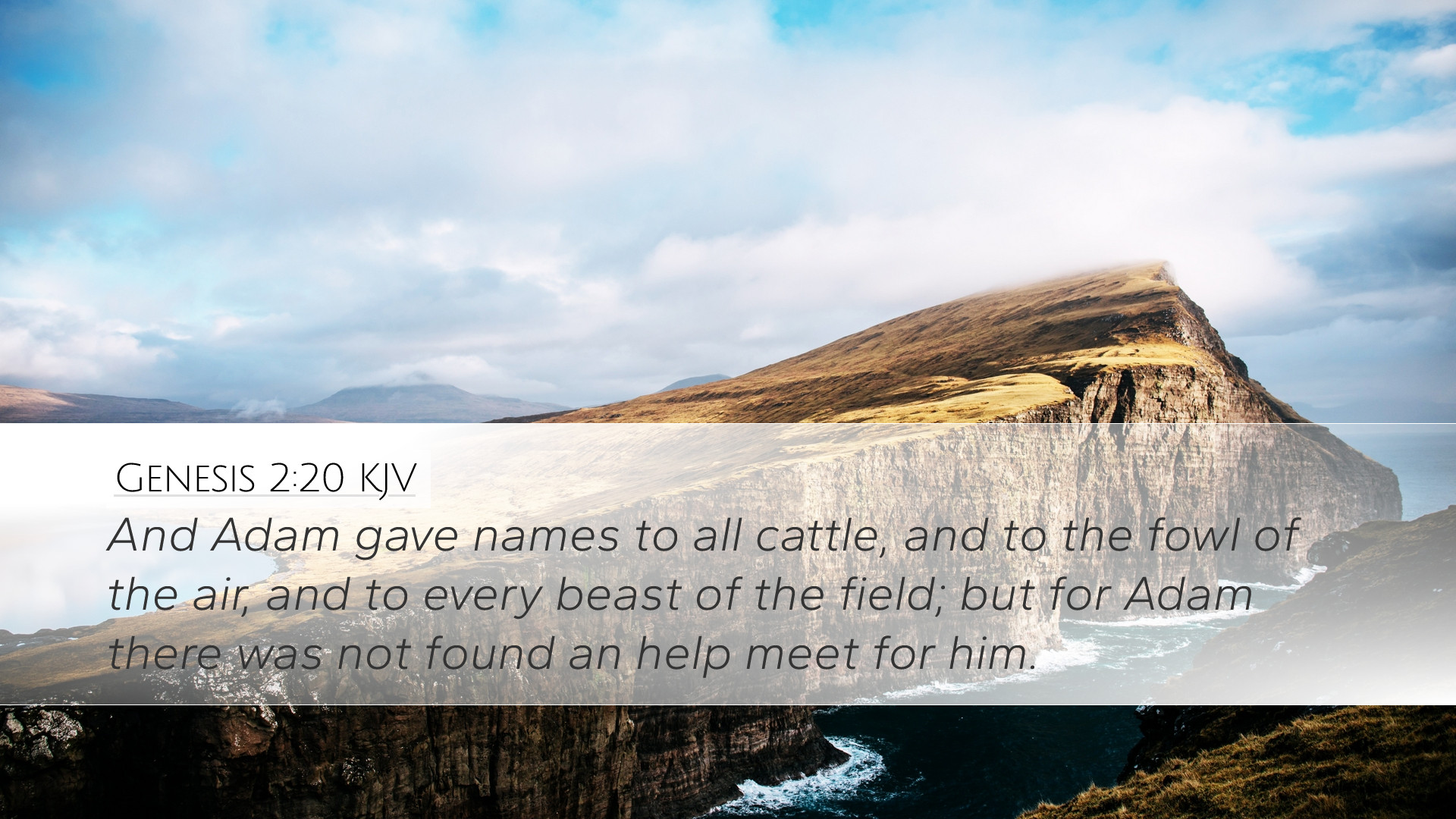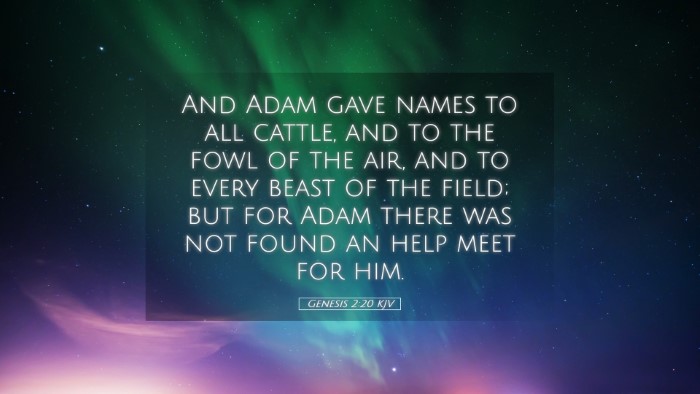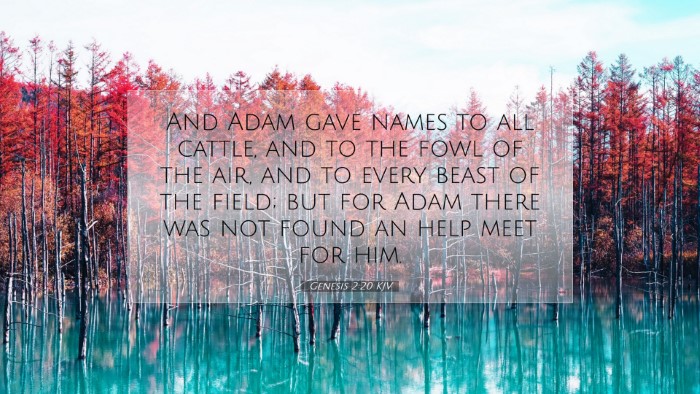Commentary on Genesis 2:20
Verse Context: Genesis 2:20 states, “So the man gave names to all the livestock, to the birds in the sky and to all the wild animals. But for Adam no suitable helper was found.” This verse captures a significant moment in the creation narrative, highlighting humanity’s unique role and the fellowship intended between humans and creation.
Overview of the Creation Narrative
This passage occurs within the broader context of the creation story where God forms Adam from the dust and breathes into him the breath of life (Genesis 2:7). The setting here is crucial as it reflects man's relationship with the rest of creation and his role as caretaker.
Matthew Henry’s Insights
Matthew Henry, in his well-known commentary, emphasizes that Adam was tasked with naming the animals as a sign of his authority over them. Naming in biblical tradition conveys ownership and relational authority. Henry notes that God brought the animals to Adam, which suggests a purposeful act and that Adam was to demonstrate his dominion.
- Authority and Responsibility: It showcases Adam's role not only as a steward of creation but also as a participant in God’s creative authority.
- The Search for a Helper: The act of naming is also contrasted with the search for a suitable helper for Adam, implying that despite the abundance in creation, none of the animals fulfilled this need.
Albert Barnes’ Commentary
Albert Barnes adds a critical theological perspective by indicating the implications of Adam's relationship with creation. He explains that the naming of the animals was a test for Adam to perceive his own need for companionship and the equality that God intended for humanity. Adam’s realization that no creature was a suitable counterpart highlights the relational aspect of human existence.
- Human Companionship: Barnes notes the significance of companionship in human nature, which is not merely for procreation but for emotional and spiritual partnership.
- Reflection of God’s Image: The passage suggests that being made in the image of God includes the need for communion, as seen in the Trinity, reinforcing the idea that humans are created for community.
Adam Clarke’s Contribution
Adam Clarke provides an in-depth look at the linguistic aspects and definitions surrounding the words used in this verse. He highlights the Hebrew understanding of 'helper' (עֵזֶר, ezer), which signifies one who assists or supports, rather than a subordinate. This understanding enlarges the view of the partnership God intended for Adam and Eve.
- Linguistic Insights: Clarke elucidates that the term 'helper' in scripture often refers to God Himself as a helper to Israel, suggesting dignity and strength in the role of the helper.
- Theological Implications: Clarke emphasizes that the search for a companion among the animals elucidates humanity's unique status and the ultimate creation of woman as the fitting helper who complements man.
Theological Reflection
In summary, Genesis 2:20 invites profound theological reflection on humanity's position in creation. It affirms the role of humans as caretakers, the dignity of relational partnership, and the implicit message of God’s intentions for companionship.
This verse serves as a reminder to pastors and theologians about the importance of community in their ministries, reflecting the communal nature of the Creator.
Pastoral Applications
- Encouraging Fellowship: This passage can encourage church communities to foster deeper relationships that reflect biblical companionship and support.
- Understanding Gender Roles: When discussing marriage, this commentary implies that both men and women reflect God's image, calling for equitable roles within the church and family.
Conclusion
The richness of Genesis 2:20, when examined through these commentaries, reveals invaluable insights into the nature of creation. It emphasizes the importance of relationship, the dignity of human existence, and God's ultimate design for humanity.


